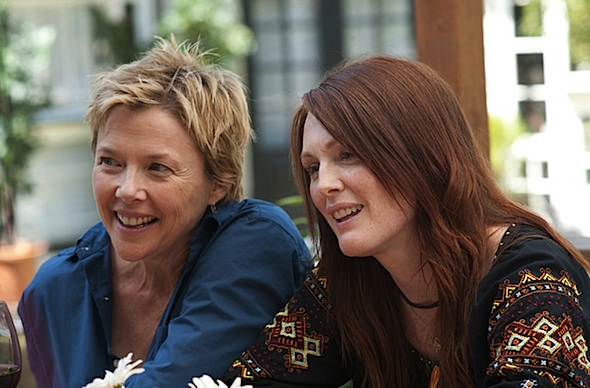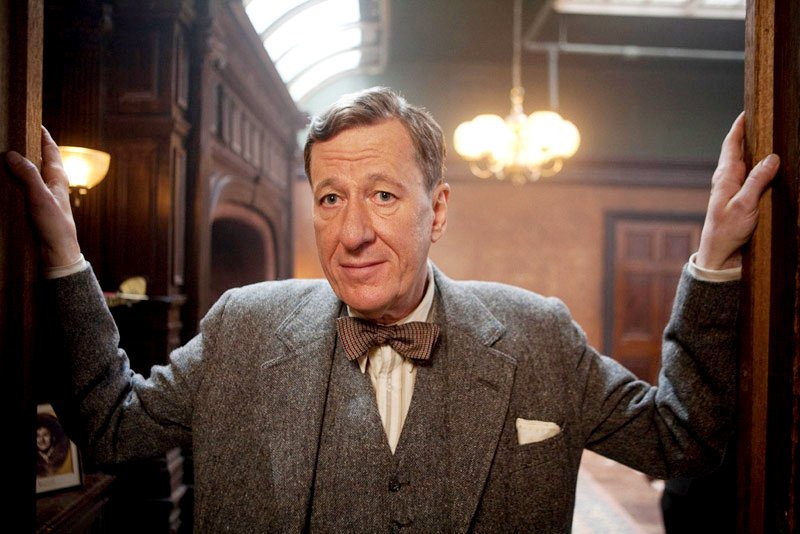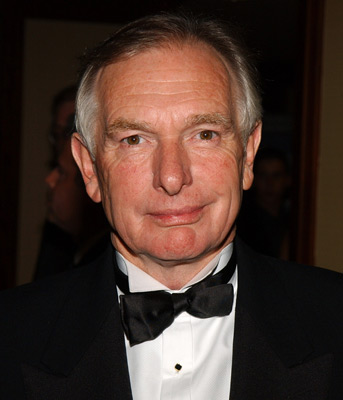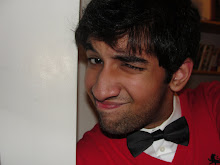.jpg)
It took ten years for director Derek Cianfrance's vision of Blue Valentine to come to the screen. After every grueling day of filming, it is reported that Michelle Williams would scream throughout the entire car ride home from set. Though its sex scenes were relatively tame, they were still viscerally affecting enough to earn it an NC-17 rating from the MPAA — usually reserved for the most extreme of content. Though filmed in a vérité style, the film is as cinematic as it is blisteringly real. It's a film that grabs you by your throat, and refuses to let go.
Some average moviegoers will take a look at the trailer and wonder what it's about. Well, the story line is really rather simple. It's an examination of a couple, played by Ryan Gosling and Michelle Williams, jumping back and forth between past, at the start of their relationship, and present, as it crumbles apart. It's a character study, and the character is the marriage between Gosling's Dean and Williams' Cindy. It would do you an injustice for me to give away too much of the details of how the film unfolds, because a lot of the film's greatness lies in its little pieces. The details. Small and large puzzle pieces alike of this mosaic of a contemporary married couple, and you as an audience are trusted to place the pieces together as you see it and come to your own conclusions of the characters' situation.
Many of these pieces are offered by the two central performances by Gosling and Williams. Both play their parts with the honest and often unsettling realism of the rest of the film. Between the two of them, it's almost four performances you're really looking at — one for each of them in their youth as well as them slightly older. Ryan Gosling's first performance is that of a young man from a broken past who manages to remain as idealistic and joyful in his youth as he is a thick-skinned and hard worker. At his core, though, he's a man who aims to please — whether in the loving care that he took to decorate the nursing home room of the old war veteran he helped move in or the exuberance in which he romantically serenaded Cindy with his songs, and it's that natural tendency in him for love that we see remain most strongly when we shift to the present. We see how torn apart he is over the loss of the family dog, we see just how fantastic of a father he is to their daughter Frankie, and we see how devoted he is to keeping this marriage alive. On the outside, though, he carries the air of a broken man. We see the physicality in which Gosling got balder and fatter, but his ambitions have greatly lowered and he hardly sees himself getting much further in life than he is at this point. Gosling is said to have based his performance upon imitating writer/director Cianfrance, thereby offering perhaps what could be the more relatable side in the movie to more people by playing his role in the same eyes as the film is directed in.
But I would assert that just his equal is Michelle Williams as Cindy. Williams had some added difficulties in being the much less mature half in the portrayal of her character's high school years — not to mention the trauma inflicted upon her then — to being the more mature half in the present. She constantly berates Dean when simply being playful with Frankie, as she doesn't "want to have to clean up after two kids." She is faced with mounting pressures from her demanding nursing job, not to mention her home life with Dean where their marriage is very clearly on the rocks. Williams does a brilliant job filling in the gaps of what may seem like questionable judgment on the page of the script. How can she possibly let go of such a great father to her child? Why such a change of heart? How did she get so mature? How did she end up going through with keeping her baby?
Of course, I do give a lot of the credit to Ms. Williams for taking on these challenges and giving in a performance as thoughtfully well rounded and emotionally affecting as Gosling. And, by the end of the film, I did feel like I could perfectly understand both sides to their stories. In fact, possibly the greatest strength and testament to the effectiveness of their performances is how well they worked in harmony with one another (or appropriate lack thereof). Their chemistry was real, almost undeniable, and their interactions with each other carry the weight of their past experiences with one another and how central the other has been in their lives. But a lot of the credit, for all of these accomplishments, also deserves to go to the enormously accomplished screenplay. The film is really quite revolutionary, as far as I've seen, in the way it depicts real life topics like abortion and human sexuality with a frank and refreshing honesty. Whether it's Dean moaning that he deserves a little more affection or how in-your-face and truly horrifying the actual procedure of an abortion is displayed (as opposed to the "pro-life" argument framing it as an "easy way out" of sorts). The depiction of a high school pregnancy was also one shown with a refreshing honesty that neither glamorized it nor demonized it. It simply was what it was, just as everything else seen in the film, which is its strongest attribute.
And the whole thing made for cinema as compelling as it can be. And that's the thing — it is truly cinematic. The performances pulled from the actors themselves seem like enough evidence for Cianfrance's directorial breakthrough without even mentioning the performance from child actress Faith Wladyka, the best since Justin Henry in Kramer vs. Kramer. But whether it be from the crisp cinematography that could at one moment elate you as it breaks you the next, or the jump cut editing between the present and past, it is a film that truly captures the delicate balance possible between a blistering realism and truly visual cinema. There were points during the film where I had suddenly realized how literally breathless I was, and for how long. For the two hour running time of the film, I had forgotten that I had to go to the bathroom beforehand. When the two hour running time had finished, much sooner than I had expected it to, there was a palpable sense of devastation in the audience I saw it with. You could feel it. It was a knockout. Read more!












